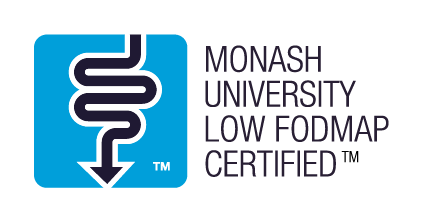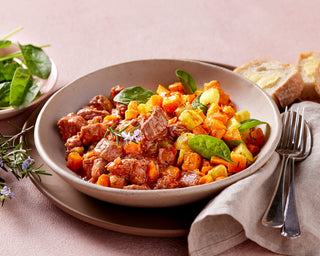
Nothing rhymes with orange, but orange rocks. It’s my favourite colour, so maybe I'm biased, but we all know the saying “eat a rainbow” and now all you need to remember is; orange = beta carotene.
What is beta carotene?
Yup, the Latin language is included in sciencey words again. But no need to fear, the name beta carotene is derived from the Latin word for carrot and is a pigment found in orange and yellow foods. Not only does it provide a gorgeous colour to our eyes, but it’s also a nutrient and when consumed it has positive effects on our health.
What effects does Beta Carotene have on our health?
Our bodies convert beta carotene to Vitamin A which is an essential vitamin that assists with many bodily functions including eye health. So, there is some truth to the association between carrots and eyes, but your mum was fibbing when she mentioned it would give you night vision! Vitamin A is also a vital nutrient for cell growth and maintaining healthy organs like our kidneys, heart, and lungs (Francine Grodstein, 2007.)
Beta Carotene is also a potent antioxidant assisting with oxidative stress around the body. Oxidative stress can cause damage to our cells, beta carotene may protect us from cellular damage and therefore boost our immune system. Studies have shown that beta carotene may improve long term cognitive function, with many studies testing its potential role in reducing symptoms of neurodegenerative diseases like Alzheimer’s (Anna WS Rutjes, 2018.)
This fab nutrient is fat-soluble, for best absorption from your orange produce it’s best to be cooked and consumed with healthy fats like olive oil, avocado, or oily fish this increases the bioavailability of beta carotene (Karin H. van het Hof, 2000.) A.k.a our bodies don’t have to work as hard for it!
What fruit and vegetables contain beta carotene?
Sweet potato
Pumpkin
Capsicums
Carrots
Tomatoes
Papaya
Apricots
Cantaloupe
Oranges
Mango
Is beta carotene only in orange produce?
No, beta carotene is also found in spinach, lettuce, asparagus, broccoli and peas. But today was about all things orange! Remember it’s always about eating a variety of fresh produce to ensure you meet your 5 a day and tick off that rule about eating a rainbow!
Check out what produce is in season this Autumn, in our blog: Four Reason’s to Eat in Season.
Alicia McIntyre
References:
Anna WS Rutjes. “Vitamin and mineral supplementation for maintaining cognitive function in cognitively healthy people in mid and late life.” Published 2018.
https://www.cochranelibrary.com/cdsr/doi/10.1002/14651858.CD011906.pub2/full
Francine Grodstein. “A Randomized Trial of Beta Carotene Supplementation and Cognitive Function in Men “ The Physicians' Health Study II, 2007.
https://jamanetwork.com/journals/jamainternalmedicine/article-abstract/413413
Karin H. van het Hof. “Dietary Factors That Affect the Bioavailability of Carotenoids.” The Journal of Nutrition, Volume 130, Issue 3, March 2000, Pages 503–506 2000. https://academic.oup.com/jn/article/130/3/503/4686253









